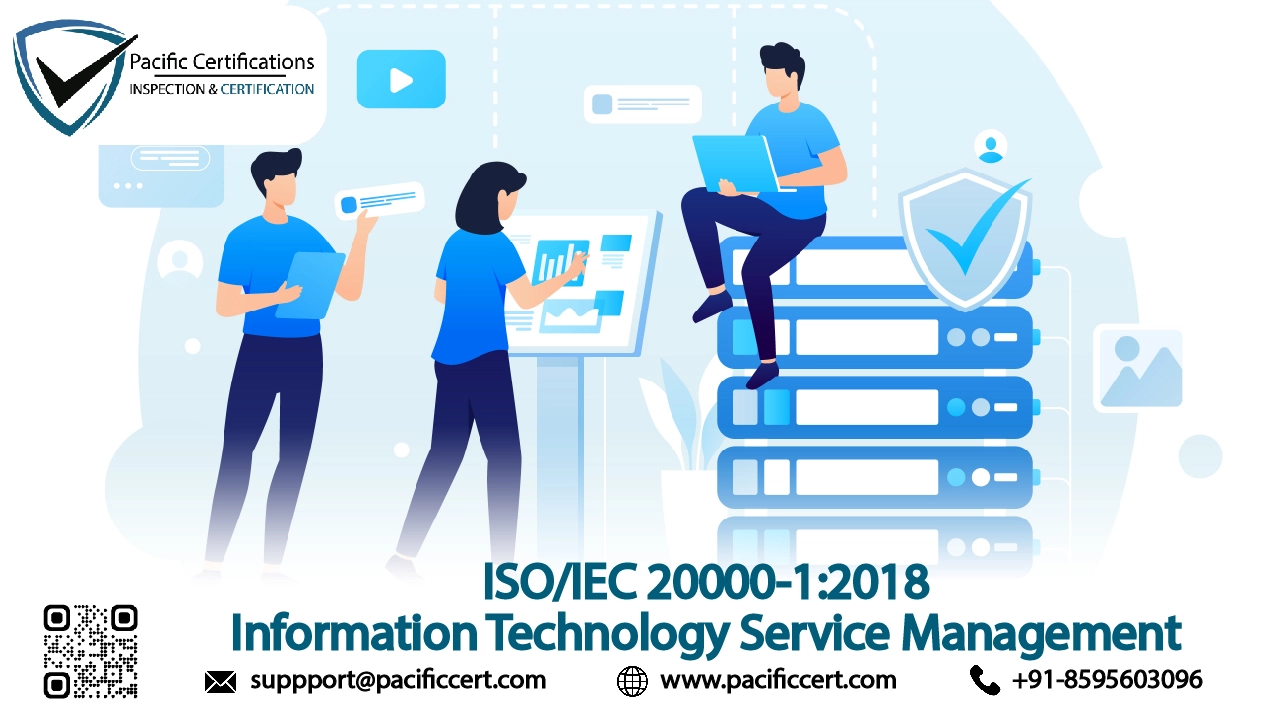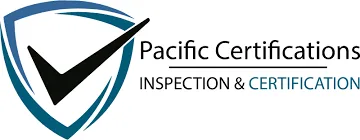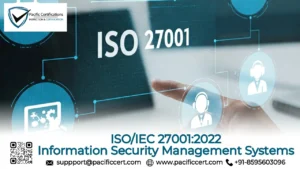ISO/IEC 20000-1:2018 – Information Technology

ISO/IEC 20000-1:2018 is the internationally recognized standard for IT service management systems (SMS). It provides requirements for establishing, implementing, maintaining and improving IT service management to ensure consistent, reliable and high-quality IT services. The 2018 version includes an amendment published in 2025 addressing climate action, highlighting the importance of aligning IT services with environmental and sustainability goals. Implementing ISO/IEC 20000-1 helps organizations optimize IT operations, improve customer satisfaction and demonstrate compliance with global best practices.
It applies to IT service providers, in-house IT departments and organizations integrating IT services into broader management systems.
To start your ISO/IEC 20000-1:2018 alignment or schedule an audit, contact our team at support@pacificcert.com.
Purpose
The purpose of ISO/IEC 20000-1 is to provide organizations with a framework to manage IT services systematically, ensuring alignment with business objectives and customer needs.

The 2025 climate action amendment introduces guidance on environmentally responsible IT service delivery, enabling organizations to reduce carbon footprint and energy consumption. By following this standard, organizations can enhance service reliability, streamline processes, mitigate risks and support sustainability initiatives while maintaining compliance with IT service management best practices.
Scope and applicability
ISO/IEC 20000-1 apply to organizations of any size or sector delivering IT services, whether internal or external. It covers IT service planning, design, delivery, monitoring and continual improvement. The standard is relevant to IT departments, managed service providers, software development organizations and IT outsourcing firms. Integration with other standards such as ISO 9001 (quality), ISO 27001 (information security), ISO 22301 (business continuity) and ISO 50001 (energy management) is encouraged. The climate action amendment is applicable to organizations seeking to align IT operations with environmental and sustainability objectives, emphasizing energy efficiency, carbon reduction and responsible resource management.
Key definitions
- IT service management (ITSM): The coordinated management of IT services to meet business and customer requirements.
- Service management system (SMS): A structured framework of policies, processes and procedures to deliver quality IT services.
- Continual improvement: Ongoing efforts to enhance service quality, efficiency and environmental performance.
- Climate action in IT: Measures to reduce environmental impact of IT operations, including energy-efficient practices, carbon footprint reduction and sustainable service delivery.
Clause-wise structure of ISO/IEC 20000-1
| Clause | Title | Description |
| 1 | scope | Defines the applicability and objectives of IT service management systems. |
| 2 | normative references | Lists related standards supporting IT service management. |
| 3 | terms and definitions | Establishes key terminology for ITSM. |
| 4 | context of the organization | Guides analysis of internal and external factors affecting IT services. |
| 5 | leadership | Establishes management commitment, roles and accountability. |
| 6 | planning | Covers service objectives, risk management and environmental considerations. |
| 7 | support | Outlines resources, competence, awareness and documentation requirements. |
| 8 | operation | Details processes for service delivery, incident management and monitoring. |
| 9 | performance evaluation | Provides guidance on audits, reviews and performance monitoring. |
| 10 | improvement | Focuses on corrective actions, continual improvement and climate impact mitigation. |
What are the requirements of ISO/IEC 20000-1?
Implementing ISO/IEC 20000-1:2018 requires organizations to establish a robust IT service management system aligned with business and sustainability objectives. Compliance ensures effective service delivery, risk mitigation and continual improvement. Below are some of the key requirements:

- Establish an IT service management framework aligned with ISO/IEC 20000-1:2018.
- Define service objectives, including quality, performance and climate action goals.
- Assign roles and responsibilities for service delivery, support and monitoring.
- Implement service management processes including incident, problem, change and configuration management.
- Monitor, measure and evaluate service performance, incorporating environmental impact assessments.
- Maintain documentation of policies, procedures, records and environmental measures.
- Conduct internal audits and management reviews to evaluate SMS effectiveness.
- Implement corrective actions for nonconformities and environmental compliance issues.
- Ensure training and competency development for personnel responsible for IT services.
What are the benefits of ISO/IEC 20000-1?
Implementing ISO/IEC 20000-1:2018 offers organizations tangible advantages that extend beyond simply meeting IT service management requirements. By adopting this standard, organizations can streamline IT processes, improve service quality and enhance customer satisfaction, while also integrating climate action and sustainability practices into their operations. The guidance supports consistent monitoring, performance evaluation and continual improvement of IT services, creating measurable efficiency gains and risk reduction. Below are some of the key benefits:

- improved consistency and reliability of IT services
- enhanced customer satisfaction and trust
- alignment of IT operations with business objectives
- proactive management of service risks and incidents
- structured continual improvement of ITSM processes
- incorporation of climate action and sustainability into IT operations
- measurable reduction in energy consumption and carbon footprint
- strengthened governance, accountability and stakeholder confidence
Organizations are increasingly integrating cloud-based ITSM tools, AI-driven monitoring and automated reporting to enhance service management and reduce environmental impact. Climate-conscious IT strategies, energy-efficient data centres and green IT initiatives are becoming standard. Many organizations align ISO/IEC 20000-1 with ISO 14001 and ISO 50001 to integrate service quality with environmental management, while also emphasizing regulatory compliance, sustainability reporting and digital transformation.
Certification process
- Conduct a gap assessment against ISO/IEC 20000-1:2018 and climate action requirements.
- Develop or update IT service management policies, processes and documentation.
- Assign roles and responsibilities for service delivery, monitoring and continual improvement.
- Implement ITSM processes including incident, change and configuration management.
- Conduct internal audits and management reviews to evaluate compliance and effectiveness.
- Implement corrective actions for process or environmental nonconformities.
- Engage a certification body for third-party verification if required.
- Maintain continual monitoring, evaluation and improvement of IT services, including climate impact measures.
What is the certification timeline?
Implementation of ISO/IEC 20000-1:2018, including climate action measures, depends on the complexity of IT services, number of teams and existing systems. Smaller IT organizations may achieve alignment in 3–4 months, while larger enterprises with multiple service lines may require 6–9 months. The timeline includes gap assessment, policy and process updates, training, monitoring and preparation for audits.
What is the certification cost?
Costs vary based on organizational size, number of IT services and the need for third-party verification. Expenses include internal preparation, documentation, training, audits and climate impact compliance assessments. Larger organizations with complex IT environments may incur higher costs. The investment ensures enhanced IT service reliability, customer satisfaction and environmental responsibility.
How Pacific Certifications can help?
Pacific Certifications supports organizations implementing ISO/IEC 20000-1:2018:
- conducting gap assessments of IT service management and climate action readiness
- reviewing and updating policies, processes and documentation
- providing training and awareness programs for IT personnel
- supporting internal audits and corrective actions
- guiding organizations through third-party verification or integrated management system alignment
Contact support@pacificcert.com to schedule certification support or training.
Training and courses
Pacific Certifications provide accredited training programs for ISO/IEC 20000-1:2018:
- Lead Auditor Training: For professionals auditing ITSM processes, including climate action measures
- Lead Implementer Training: For personnel establishing or improving IT service management systems
- Internal Auditor Training: Prepares internal auditors to monitor service performance, compliance and sustainability measures
Training is available onsite or online, offering flexibility for organizations of all sizes. For guidance or to schedule a training session, contact support@pacificcert.com.
Frequently asked questions (FAQs)
Which organizations should implement ISO/IEC 20000-1?
IT service providers, in-house IT departments and organizations seeking standardized, reliable and environmentally responsible IT services.
Is ISO/IEC 20000-1:2018 mandatory?
No, it is voluntary, but implementation demonstrates compliance, service quality and environmental responsibility.
Can it be integrated with other ISO standards?
Yes, it aligns with ISO 9001, ISO 27001, ISO 22301, ISO 14001 and ISO 50001.
How long does implementation take?
Implementation generally ranges from 3–9 months depending on IT service complexity and number of teams.
Is training required for personnel?
Yes, staff must understand ITSM processes, roles and climate action measures.
What are the key benefits of certification?
Enhanced IT service reliability, operational efficiency, customer satisfaction and reduced environmental impact.
Can small IT teams adopt this standard?
Yes, it is scalable for small and large organizations.
How often should IT services be reviewed?
Continuous monitoring, internal audits and periodic reviews are required to maintain service and environmental compliance.
Does this standard cover all IT services?
Yes, all IT services included in the SMS scope are covered, including cloud, on-premise and hybrid services.
Is ISO/IEC 20000-1:2018 recognized internationally?
Yes, it is a globally recognized standard for IT service management systems, now including climate action considerations.
Contact Us
If you need support with ISO/IEC 20000-1:2018 certification, contact us at support@pacificcert.com.
Read More at: Blogs by Pacific Certifications






